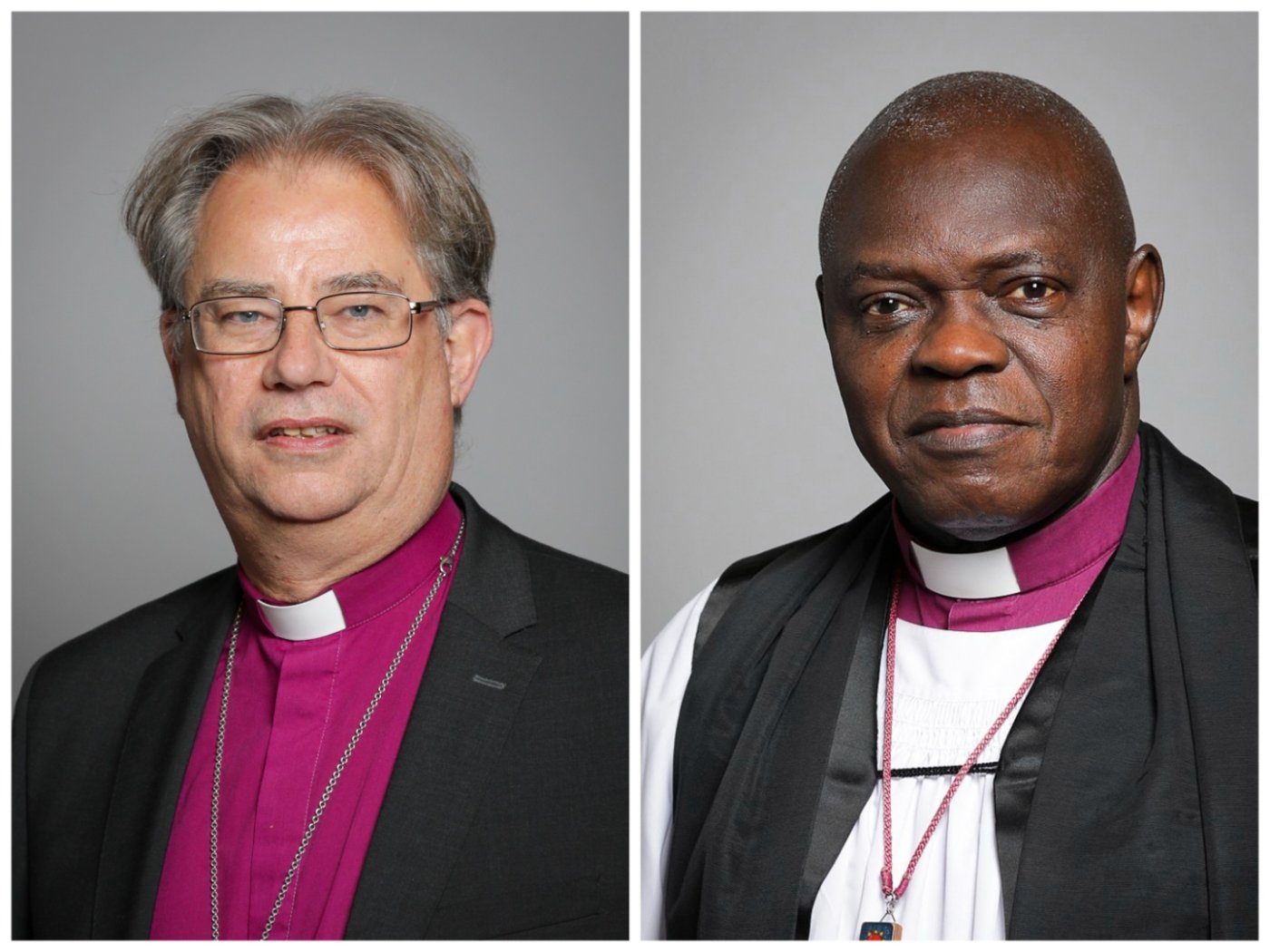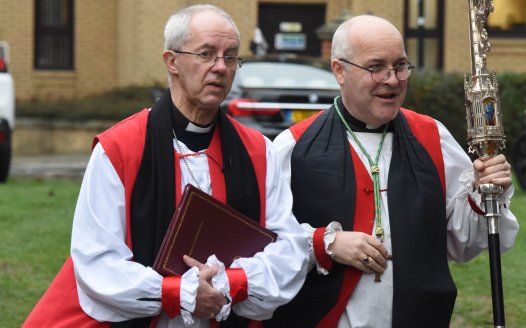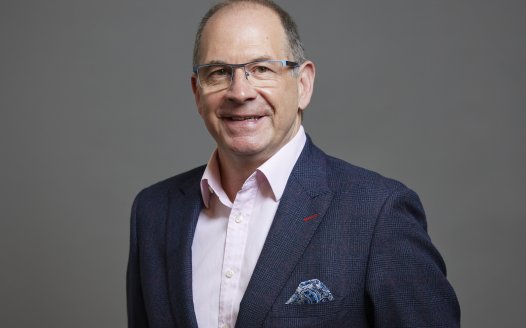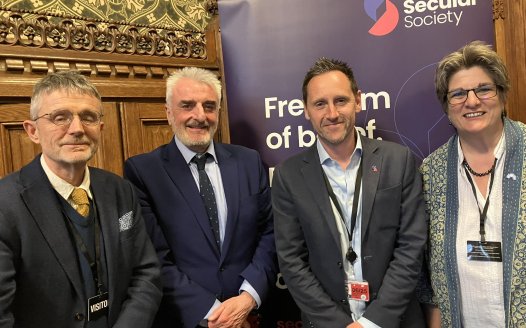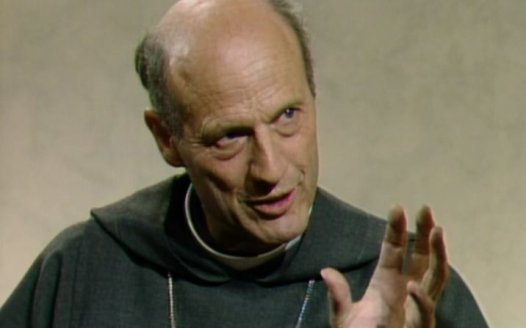Hold the Church to account for abuse – separate it from the state
Posted: Tue, 16th May 2023 by Megan Manson
The Church of England's increasingly dire record on safeguarding should have consequences for its established status, says Megan Manson.
It didn't take long for the glitz and glamour of the coronation to fade, and for the Church of England to find itself back in the quagmire of abuse scandals.
Within days of their Westminster Abbey extravaganza, the UK's established Church found itself having to answer to damning findings of an independent review into the case of Trevor Devamanikkam, a CofE priest who raped Matthew Ineson in the 1980s. Ineson was just 16 years old.
Days later, victims of alleged abuse at the hands of CofE preacher Mike Pilavachi called for an independent investigation into his actions, as they don't trust the Church's own internal inquiry.
Pilavachi's victims and survivors have every right to be sceptical of the Church's ability, in their words, to "mark its own homework". The Devamanikkam review, and responses from those implicated, make plain why.
The review paints a picture of a chaotic and bumbling Church, unclear of what to do when safeguarding disclosures are made and incapable of providing important paperwork relating to the case in a timely manner (if at all).
But most troubling of all are the bishops who failed to act despite Ineson, himself now a CofE vicar, making multiple verbal and written disclosures of abuse. Bishop of Oxford Steven Croft (pictured; left) and retired archbishop of York John Sentamu (right) in particular stand out. Both of them sit in the House of Lords thanks to the unique CofE privilege of having 26 seats reserved for their bishops. Croft is a current member of the bishops' bench and Sentamu is now a Lord Temporal; all former archbishops of Canterbury and York are offered life peerage.
Croft has admitted his inaction was wrong and, 10 years after Ineson's disclosure, has finally apologised. Ineson, not unreasonably, has called for Croft to step down: "You cannot ignore disclosures of rape by a priest and do nothing."
But Sentamu's reaction has been quite different. Let's not forget he was archbishop of York at the time of the disclosures – second only to the archbishop of Canterbury in the church hierarchy. He was copied into Ineson's letter disclosing the abuse to Croft in 2013. In any place of work, you would hope a safeguarding issue, especially one raised by a current employee, would be taken with the utmost seriousness by senior management. But Sentamu's only action was to reply to Ineson: "Thank you for copying me into the letter, which I have read. Please be assured of my prayers and best wishes during this testing time."
The review rightly criticised Sentamu for failing to use his authority to ensure Croft responded to Ineson, or to write to Ineson directly, or to seek advice from his Diocesan Safeguarding Adviser, instead of merely sending 'thoughts and prayers'.
Unlike Croft, Sentamu's reaction to the review was not to admit wrongdoing, but to double down. He said the reviewer's conclusion that no church law "excuses the responsibility of individuals not to act on matters of a safeguarding nature" is "odd and troubling". He even made the extraordinary claim that "Safeguarding is very important but it does not trump Church Law".
Sentamu appears to be incorrect; the review concluded Sentamu failed to act according to the Church's own procedures. But his statement is not only wrong – it reveals the extremely warped sense of moral priorities that many Church leaders operate under. If a church's rules meant a victim of child sexual abuse could not get justice, surely a moral person could not tolerate being a leader within that church?
Sentamu has since been asked to step down from his CofE role while the Church considers the review. But he is by no means the first CofE leader to seemingly prioritise institutional agendas over the safety and wellbeing of children and young people. Consider the case of bishop Peter Ball, whose victims of abuse were branded liars by the Church while Ball was afforded all sympathy and support – even from former archbishop of Canterbury George Carey and then-Prince Charles, who is now the Church's supreme governor.
Even former culture secretary Nadine Dorries MP, not usually a sceptic of faith groups, has criticised the Church's response to the Devamanikkam case. She was abused as a child by an Anglican priest but was met with "silence" when she disclosed what happened to her, and probably to other young girls, to bishops in the House of Lords. She rightly asks: "How many more of us — people like Matthew Ineson and myself — are there out there? People who were abused as youngsters and then ignored."
She adds: "The Roman Catholic Church has, with good cause, been the focus of much of the historic child sex abuse in recent decades, and that has suited the Church of England. But it cannot escape the evil that lurks within its own cloisters any longer."
But what is the state's response to the Church's failures on child abuse?
Very little, it seems. The Church continues to sit comfortably in the constitution as the state religion, luxuriating in the status and privilege this brings. Its bishops, even those at the heart of safeguarding failures, continue to sit in the House of Lords as of right. Our head of state must pledge to uphold the Church's privileges at an Anglican ceremony costing millions in taxpayers' money – as we speak, plans for William's coronation are already afoot. The Church is allowed to lead prayers at the start of every sitting in both houses of parliament. And it controls over a quarter of all primary schools, making it the largest academy provider in England. Hardly a responsibility we'd usually grant an institution with such an appalling record on child abuse.
The Church uses its supposed 'moral insight' to argue for its privileges. Its record on sex abuse surely shatters this argument – together with its increasingly outdated institutional homophobia and sexism.
Survivors and campaigners rightly call for a zero-tolerance approach from the Church of England towards abuse. But this responsibility should also apply to the UK state. If we want to demonstrate we take protecting children from abuse and justice for victims seriously, we must show there are consequences for institutions that repeatedly fail in safeguarding. That should include stripping the Church of its exclusive, unearned and increasingly unjustifiable privileges as the state religion.
Image: Roger Harris, CC BY 3.0

